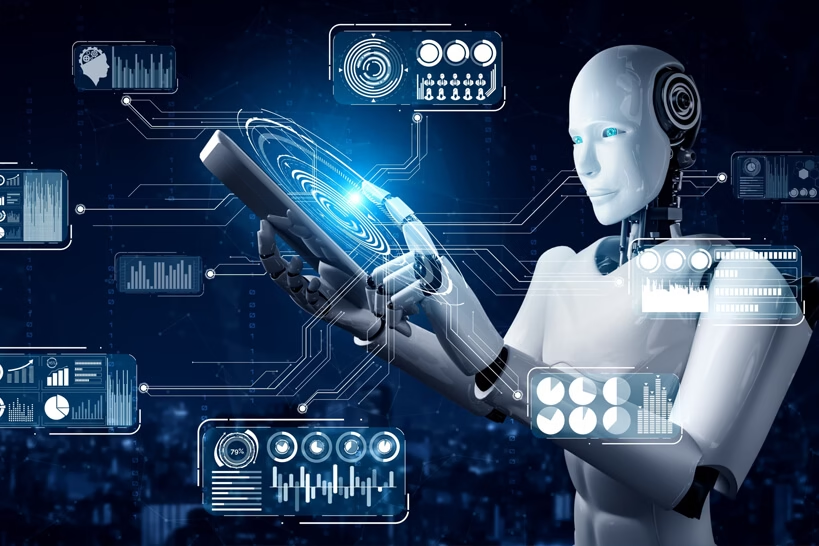In today’s fast-moving tech landscape, Artificial Intelligence (AI) and Machine Learning (ML) are no longer just futuristic concepts. These technologies are fundamentally transforming industries and are now at the heart of everything from healthcare and finance to retail and transportation. In this post, we’ll take a closer look at how AI and ML are reshaping technology, how they’re being used today, and what the future holds for these groundbreaking tools.
Understanding AI and Machine Learning
Artificial Intelligence (AI) is the creation of machines that can perform tasks that usually require human intelligence. These tasks include problem-solving, decision-making, and recognizing patterns. Think of AI as the brain behind machines that allows them to simulate human thinking processes.
On the other hand, Machine Learning (ML) is a branch of AI focused on building algorithms that help machines learn from data. Instead of being explicitly programmed to perform a task, machines with ML abilities improve over time by recognizing patterns in data and adapting accordingly. It’s like teaching a machine to get smarter by learning from experience, just like humans do.
Current Applications of AI and ML
Healthcare
AI and ML are transforming healthcare by improving diagnostic accuracy and personalizing treatments. Machine Learning algorithms can sift through massive amounts of medical data to detect diseases like cancer at their earliest stages. AI-powered systems are also making healthcare more efficient by automating administrative tasks like appointment scheduling and patient support. IBM’s Watson Health is a leading example of AI assisting doctors with treatment decisions and medical research.
Finance
In the finance sector, AI and ML are helping banks and financial institutions detect fraud, assess risk, and provide better customer experiences. By analyzing transaction data in real time, machine learning can identify suspicious activity and prevent fraud before it happens. Additionally, AI is making financial services more accessible through tools like robo-advisors, which provide personalized investment advice without the need for human intermediaries.
Retail & E-Commerce in AI and Machine Learning
E-commerce companies like Amazon and Alibaba are leveraging AI to refine their recommendations and customer service. AI algorithms predict what customers want to buy based on past behaviours, making shopping more personalized. Machine Learning helps refine these predictions over time, making the recommendations more accurate with each purchase. AI also plays a key role in inventory management, helping retailers better predict demand and optimize supply chains.
Transportation
AI and ML are driving the future of autonomous vehicles. Companies like Tesla and Waymo are at the forefront, using AI to navigate self-driving cars. These cars use machine learning to continually improve their ability to detect obstacles, make split-second decisions, and drive safely. As AI improves, we can expect these vehicles to become even smarter, safer, and more efficient.
The Future of AI and Machine Learning
The possibilities for AI and ML are vast. Quantum computing, for instance, could take AI to the next level by allowing machines to process far larger datasets more quickly than today’s computers can. This has the potential to revolutionize industries like drug discovery, cybersecurity, and climate modelling.
As AI and ML continue to grow, the importance of ethics and regulation will only increase. The development of these technologies raises questions about privacy, security, and bias. Ensuring that AI is used ethically and responsibly will be crucial to its continued success and widespread adoption.
Conclusion
AI and Machine Learning are no longer concepts of the future – they’re already here, driving efficiencies, innovation, and new possibilities across many industries. These technologies are not only improving existing processes but also enabling new business models, products, and services.
If you’re in the tech industry, incorporating AI and ML into your strategy could provide a significant competitive advantage. These tools can help optimize operations, automate repetitive tasks, and offer a more personalized experience for your customers. The question is no longer if these technologies will impact your business, but when and how.
By embracing AI and Machine Learning, you position yourself to stay ahead of the curve and take part in the next digital revolution.



